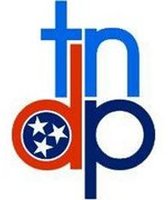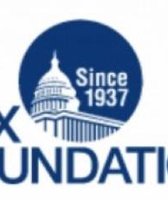Stand up for the facts!
Our only agenda is to publish the truth so you can be an informed participant in democracy.
We need your help.
I would like to contribute

What to do with the massive Tennessee Lottery reserves that keep building?
Tennessee Lottery officials announced yet more record-breaking revenues on Monday, saying it had raised more than $323 million this year for state education programs. It was the eighth-straight record setting year and a 10.2 percent increase — or roughly $30 million — over last year's then-record of $293.4 million.
In reporting the story, we went back to Dolores Gresham, the Republican state senator from near Somerville, about 45 miles east of Memphis in Fayette County.
Gresham, chairman of the senate’s education committee, sponsored and pushed a bill that would have cut in half proceeds for many students who rely on scholarship funding provided by the lottery revenues. At the time, she and House sponsor Harry Brooks, R-Knoxville, said the move was an effort to close a deficit between the annual costs of the scholarship program and the proceeds earmarked for it from the Tennessee Lottery.
Currently students can get a scholarship worth $4,000 for each of four years if they meet either the 3.0 grade point requirement in high school or score a 21 on the ACT college entrance exam. The bill called for requiring students hit both benchmarks, or their funding would be cut in half.
Our understanding was that while there had been a few years with operating deficits, overall the Tennessee Lottery was doing quite well, breaking records with revenues and building up an enormous reserve fund. That’s what prompted us to examine this statement made by Gresham on Feb. 29: "Right now we have sufficient reserves to take care of Tennessee's lottery scholarship students for a few years more."
Gresham's statement received a False by our three-editor panel and we also noted that State Senate Speaker Ron Ramsey had been sympathetic to the Gresham plan (the senate at one point approved her bill, 20-10). Go read the entire ruling by The Commercial Appeal Nashville bureau chief Richard Locker to really get a strong sense of the lottery program, its history and connection to helping fund college tuition for Tennessee students.
We reported that the state in December was showing a lottery reserve fund of $362.7 million, with another $31 million in investments. As we concluded in the ruling: " For Tennessee’s huge lottery reserve fund to be depleted would mean exponentially unprecedented deficits that are not seen by even the most pessimistic of projections."
Jim Kyle, D-Memphis, the state senate’s minority leader, noted in his remarks that he would fight to make sure the lottery money doesn’t stay "in some reserve account where it is not helping anybody."
Gresham said she was pleased, because the news represents good news for students. But she also said: "I didn't try to push anything. The bill died. That's not even an issue."
Our Sources
See item for embedded links.




















































